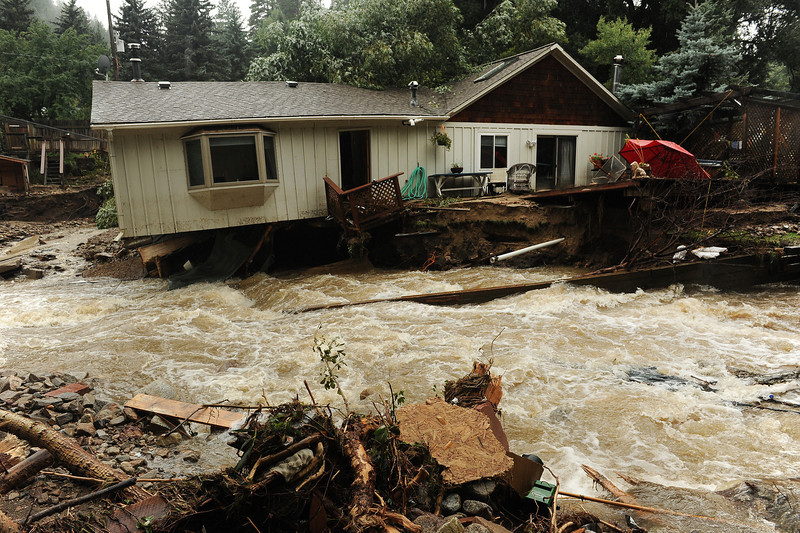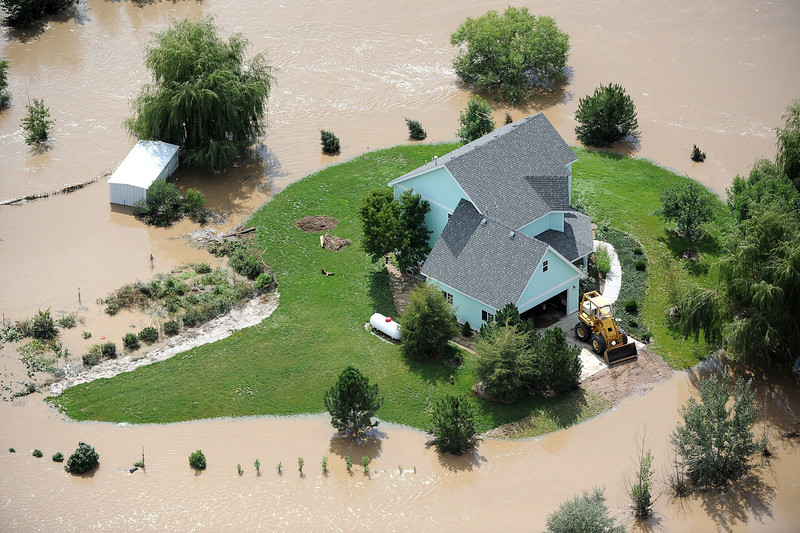At Rocky Mountain Catastrophe, our hearts go out to the victims of the recent Colorado flooding. That’s why we’ve spent the past several days down in the Front Range communities, helping our friends with flood cleanup and restoration. Give us a call at 970-531-7308 if we can help.
Although the majority of the damage is (hopefully) already done, the flooding can still pose several health risks. If you are among those helping to clean up flood-damaged areas, here are some tips to help keep you safe.
If flooding has left water and mud all over your property, be careful around it. Floodwater can potentially be contaminated with sewage, animal manure, and whatever other nasty stuff it swept up along the way. When cleaning up floodwater and mud, wear a respiratory-quality facemask and some good tough gloves and boots. After cleaning, be sure to wash up thoroughly with antibacterial soap.
Any clothing that is wet or soiled by floodwater may be contaminated, though fortunately, it shouldn’t be difficult to clean and sanitize your attire. Wash clothes on the hottest cycle the fabric will allow, and use some sort of sanitizing cleaner. Liquid chlorine, pine oil, quaternary germicidal cleaners such as Roccal, and phenolics such as Pine Sol can all be used to sanitize your clothes, depending on the fabric.
If there has been flooding in your community, check local news for any tap water restrictions or boil orders. If a tap water restriction has been enacted, boil water for at least 3 minutes to make sure it’s safe to drink. Bottled water is another safe option. If your property has a well water system, have the well and water supply inspected after a flood.
When it comes to salvaging food in a home that has been flooded, remember – when in doubt, throw it out! If any food has been exposed to floodwater, your safest bet is to simply dispose of it. If your home has lost power and refrigerated foods have not been kept cold, they are also likely to spoil.
Some foods may be salvageable, such as canned goods. Remove the labels from the cans, scrub each can with a solution of 1 tablespoon of bleach per gallon of clean water, and let air-dry. This solution will disinfect the cans in a pinch.
Remember to turn off your electrical, gas, and water utilities if your property has been flooded. Gas leaks, electrical shocks, and other dangerous complications can arise from flood damage.
Also, this one may seem obvious, but it’s still important – many flood-related injuries occur as a result of slips and falls while cleaning and repairing damage. Remember to exercise caution around slippery flooded areas.
If your property has been damaged by flooding, we highly recommend having your property evaluated by professional damage restoration experts. Rocky Mountain Catastrophe is extensively experienced with just this sort of thing. We know how to completely locate and remove any contaminated floodwater, mud, and other debris from every last little corner of your home. We can also identify and repair any flood damage your property may have incurred. We can even help restore your home’s furniture and personal possessions affected by the flood.
We know how difficult it can be to recover from a flood disaster. It’s a burden no homeowner should have to face – but that’s where Rocky Mountain Catastrophe can help. You already have enough to worry about, so let us do the dirty work for you. We can help you get your life back in order that much sooner.
For help with flood cleanup and restoration, contact Rocky Mountain Catastrophe today – call us 24/7 on our emergency hotline at 970-531-7308.
For a more in-depth report on flood cleanup from Colorado State University at floodsafety.com, click here.
Credit The Denver Post for their photo coverage of the flooding.



